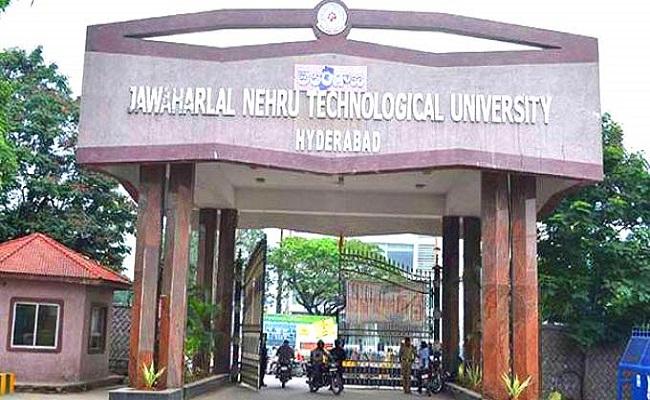Hyderabad JNTU Courses, Curriculum to be Revamped

JNTU-Hyderabad is updating the curriculum for all of its courses.
Hyderabad: The Jawaharlal Nehru Technological University-Hyderabad (JNTU-H) has resolved to overhaul the curriculum of all its courses in light of emerging technology and evolving market requirements. The redesigned curriculum for BTech, B Pharmacy, M Tech, M Pharmacy, MBA, and MCA programmes will begin in the 2022–23 academic year.
To that end, the institution has enlisted the help of 150 experts from various sectors, including academics from Indian Institutes of Technology (IITs) and National Institutes of Technology (NITs) from throughout the nation, who will participate in joint Boards of Studies sessions on May 19, 20, and 21. Apart from that, industry professionals will offer suggestions for modifying the course content to meet the needs of the industry.
Also Read: TS SSC 2022 Hall Tickets, Download Here
"The syllabus of all undergraduate and postgraduate courses of the university will be revised in line with the National Education Policy and as per industry needs," a senior official stated.
Though the varsity has been re-designing the course curriculum every three years, the COVID-19 epidemic caused a delay this time. The university has chosen to rewrite the syllabus now that academic institutions have resumed physical lessons and regular examinations.
The revision's goal is to keep students up to date on the latest technology and to teach them the skills that the industry requires, as well as to improve their employability.
To do this, the university will consider increasing the number of practical engineering classes. In addition, the total number of credits for engineering courses will be reduced from 180 to 160. Furthermore, internships are anticipated to become required for all students beginning in the next academic year.
Apart from that, the university plans to make core engineering branches more appealing since a huge number of private engineering colleges have done away with them in favour of courses in new technology. Subjects in emerging technologies should be offered as electives to core engineering branch students to help with this.
The university will also assess the need for additional courses during the three-day meeting. During the last several years, artificial intelligence, machine learning, the internet of things, computer engineering, automation, and robotics, among other technical fields, have been introduced at the undergraduate level.
The introduction of a multiple-entry and departure policy as part of the NEP implementation is also on the agenda for the conference. As part of the four-year degree programme, students will be able to choose between one-year (certificate), two-year (diploma), three-year (degree), and four-year (Hons) courses.





